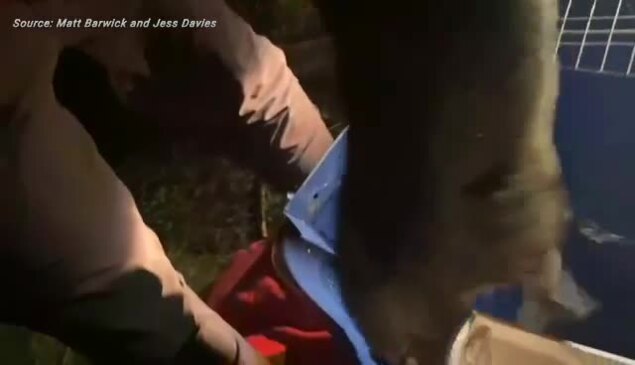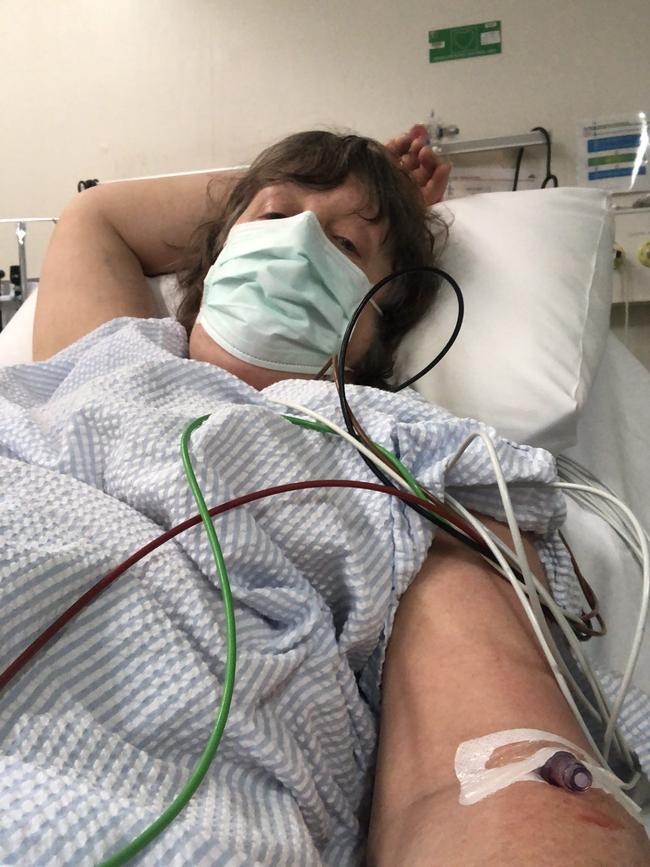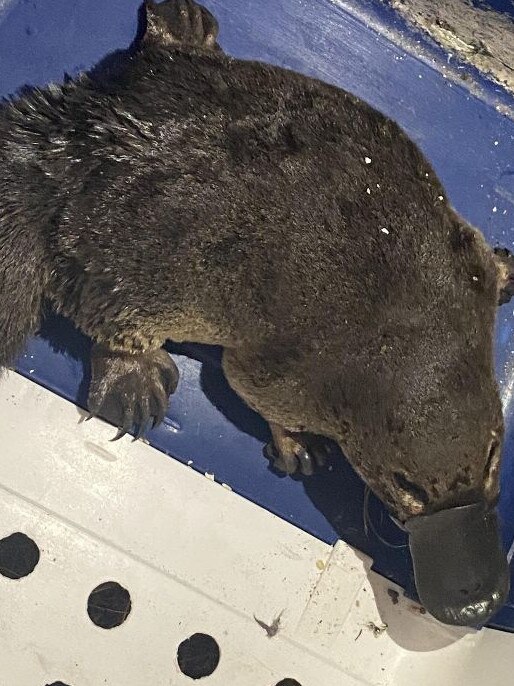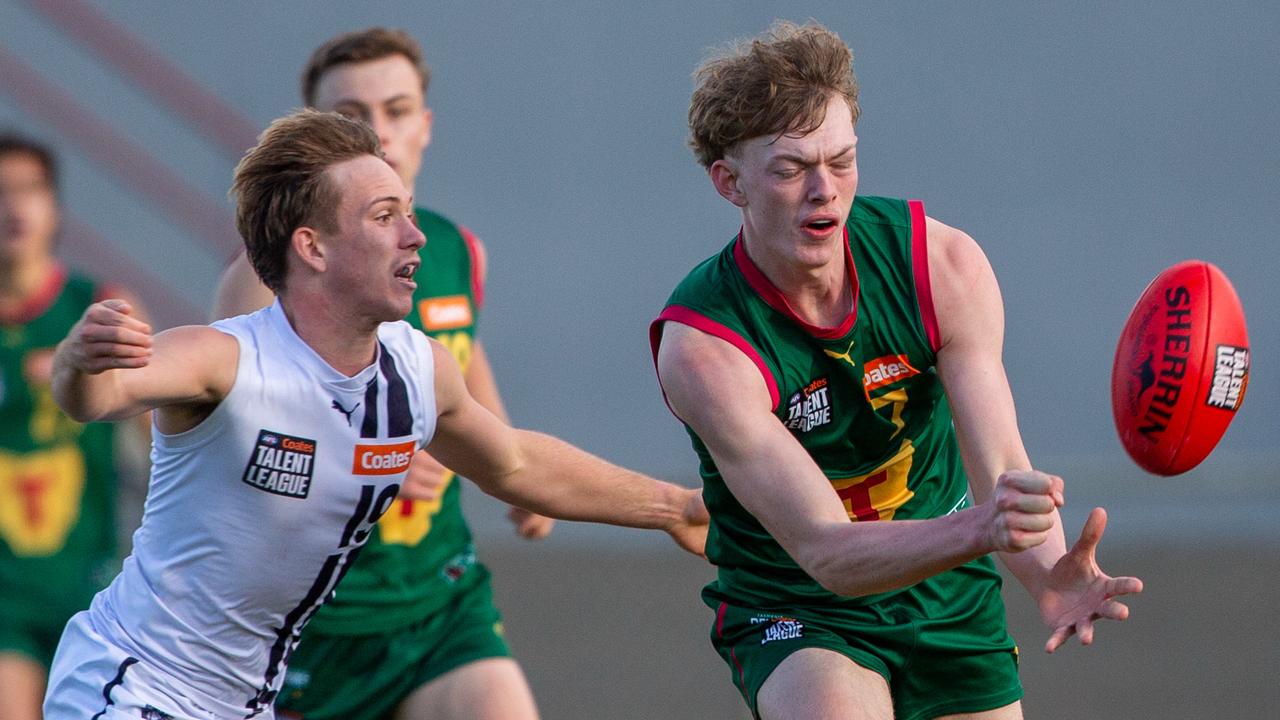‘It’s like someone stabbing you with a knife’: Platypus rescue ends with woman’s hospitalisation
When Jenny Forward stopped to rescue a platypus, she never thought her actions would end with her in “excruciating” pain and needing to be hospitalised. She has issued a warning to fellow wildlife lovers. Watch the creature’s rescue.

News
Don't miss out on the headlines from News. Followed categories will be added to My News.
When Jenny Forward stopped to rescue a platypus on the side of a Kingston road, she never expected to find herself in “excruciating” pain, and rushed to hospital just moments later.
Ms Forward was travelling home on Summerleas Rd when she spotted the animal in the gutter and pulled over to help.
“I put my hazard lights on, got out of the car and found this poor platypus on the road and it looked like it was trying to get down the storm water drain that was blocked,” Ms Forward said.
“I lifted the platypus up … it gave a bit of a wiggle and next thing you know, [I felt] the most excruciating pain I have ever felt in my whole life.”
Ms Forward was struck on her right hand by the animal’s venomous spurs and said the pain was “unbelievable”.
“It’s like someone stabbing you with a knife,” she said.

Ms Forward’s hand swelled to twice its size and she underwent surgery at the Royal Hobart Hospital to extract the venom, and clean the two wounds.
The animal was released back into the wild the same night after Bonorong Wildlife Rescue volunteers assessed its condition.
Ms Forward is still unable to work, one week on from the incident.
She encourages Tasmanians to participate in Bonorong’s free wildlife rescue training to prevent others from being injured.
“I wish I had done the training because then I would have known the right thing to do and I would have had a rescue kit in the car,” she said.

“I really want to use this opportunity to encourage people to do the wildlife training … because if I had, I wouldn’t have made the mistake.”
Bonorong Wildlife Rescue Director Greg Irons said around 50 per cent of calls involving platypus don’t end in the mammal needing help, and locals should not handle the animal.
“As far as handling them goes, don’t handle them in any situation, it’s not required,” Mr Irons said.
“They use drains as highways and so most of the time they are fine.”
“What they should do is get a video or photo and send it to us and we can assess the situation and see if they really need help.”
Mr Irons said people can help the local platypus population by picking up rubbish, particularly around waterways.




